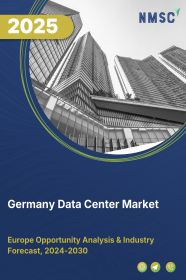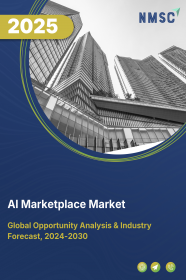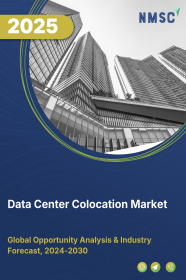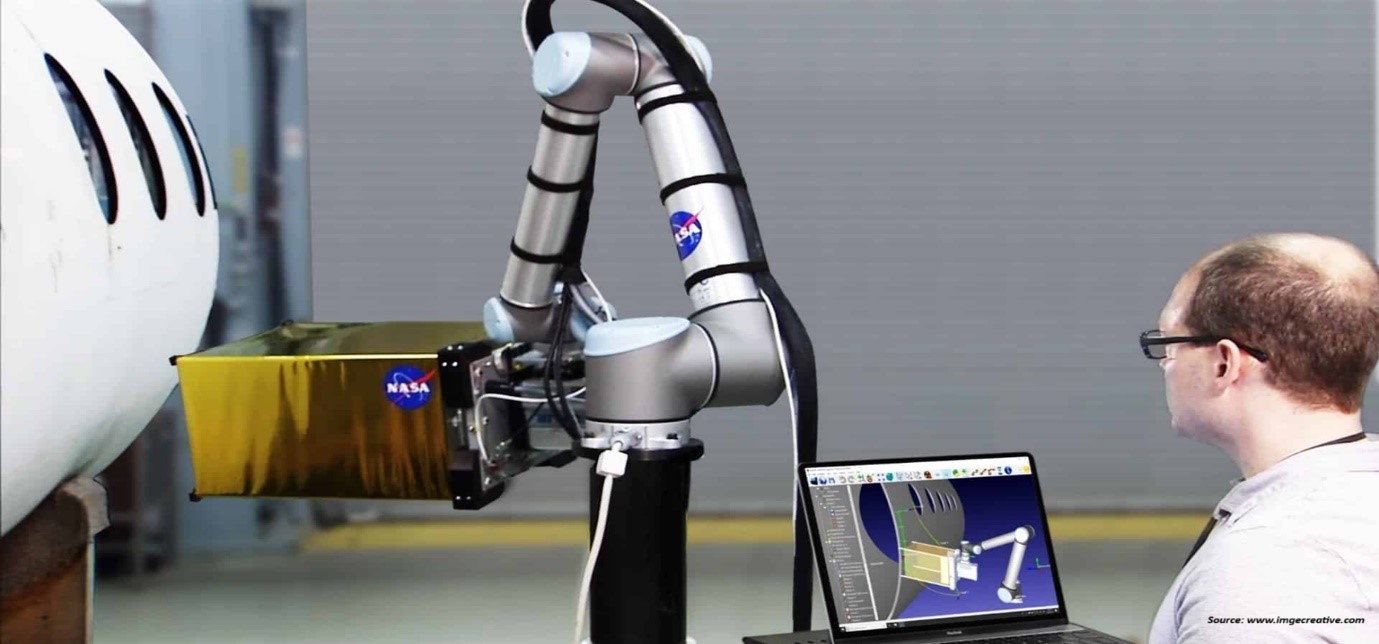
Germany Data Center Market by Component(Hardware, Software, Services), by Type(Colocation, Hyperscale, Edge, Other Types), by Deployment Model(On-Premises, Cloud, Hybrid), by Tier Standard(Tier 1, Tier 2, Tier 3, Tier 4), by Cooling Techniques(Air Cooling, Liquid Cooling, Dry Cooling, Immersion Cooling, Others), by Enterprise Size(Large Enterprises, Small and Medium Enterprises), by End User(BFSI, IT and Telecom, Government, Energy)–Opportunity Analysis and Industry Forecast, 2024–2030
Industry: ICT & Media | Publish Date: 02-Apr-2025 | No of Pages: 140 | No. of Tables: 104 | No. of Figures: 69 | Format: PDF | Report Code : IC2269
Germany Data Center Market Overview
The Germany Data Center Market size was valued at USD 8.17 billion in 2023, and is predicted to reach USD 18.02 billion by 2030, at a CAGR of 12.0% from 2024 to 2030. The data center market, also referred to as the network infrastructure market, encompasses the planning, construction, operation, and upkeep of specialized infrastructure dedicated to hosting computing systems. It comprises various components such as servers, storage systems, and networking gear, providing services such as cloud computing and connectivity solutions. Presently, the industry is witnessing widespread adoption of cloud services, alongside the emergence of edge computing to minimize latency.
Key trends include an emphasis on sustainability, heightened cybersecurity concerns, the integration of hybrid and multi-cloud approaches, and the influence of 5G networks. These trends underscore the industry's response to the growing demand for scalable, efficient, and secure data processing and storage solutions in the era of digital transformation. According to the United States International Trade Commission, the data processing and storage market is projected to expand from USD 56 billion in 2020 to USD 90 billion by 2025.
Rapid Digital Transformation is Driving the Market Growth
The data center market in Germany witnessed remarkable growth, propelled by ongoing digital transformation initiatives and the escalating demand for Industry 4.0, Internet of Things (IoT), cloud services, big data analytics, data security, and AI applications. Notably, Frankfurt am Main emerged as one of Europe's premier hubs for network infrastructure, alongside cities such as London, Amsterdam, and Paris. With 522 operational centers, Germany boasts the highest number of such facilities in Europe, solidifying its position as one of the largest markets in the region. This surge in demand underscores the country's pivotal role in meeting the evolving needs of digital businesses across various sectors.
Expansion of Global Companies is Fuelling the Growth of the Market
The expansion of prominent global companies, including Alphabet Inc. and Alibaba Group Holding Ltd., is a significant driver propelling the demand for the data center industry in Germany. A notable example is Google's recent investment of USD 1.08 billion in a new cloud region, Berlin-Brandenburg, marking its second in Germany by 2030. This initiative enhances digital infrastructure by offering a range of services such as Compute Engine, Kubernetes Engine, and Cloud Storage. The Berlin-Brandenburg region caters to Google Cloud customers with local cloud capacity, enabling them to scale their workloads efficiently. This expansion aligns with Google Cloud's global network strategy, comprising 38 regions and 115 zones, further solidifying Germany's status as a key market for investments.
High Initial Investment Hinders the Germany data center Market Growth
The data center industry encounters significant challenges, particularly the high initial investment and stringent environmental regulations. Establishing and maintaining network infrastructure requires considerable upfront financial commitments, creating barriers for smaller enterprises and startups. Additionally, ongoing compliance with environmental standards demands continuous investment in energy-efficient technologies hinders the overall Germany data center market growth.
Integration of Edge Computing Presents Lucrative Opportunity for Market Expansion
The integration of edge computing into Germany data center market trends offers significant prospects for the industry's growth. By reducing latency and enabling real-time processing, edge computing supports applications such as the Internet of Things (IoT) and Augmented Reality (AR), reducing the load on centralized cloud data center while providing scalability and flexibility. This decentralized approach not only improves security by processing sensitive data locally but also aligns with evolving digital landscapes, creating diverse opportunities for network infrastructure providers. Recent investments in startups such as Armada reflect the growing interest in edge computing solutions, indicating a concerted effort to address connectivity challenges and bridge the digital divide.
Competitive Landscape
The key market players operating in the Germany data center industry include China Telecom, Equinix, Digital Realty, Zenlayer, Amazon Web Services (AWS), 365 Data Centers, MOD Mission Critical (MOD), IBM Cloud, Cogent Communications, EdgeConnex and others.
Germany Data Center Market Key Segments
By Component
-
Hardware
-
UPS
-
Generators
-
Transfer Switches
-
Cooling Systems
-
Computer Room Air Conditioning (CRAC)
-
Racks
-
Others
-
-
Software
-
Services
By Type
-
Colocation
-
Hyperscale
-
Edge
-
Other Types
By Deployment Model
-
On-Premises
-
Cloud
-
Hybrid
By Tier Standard
-
Tier 1
-
Tier 2
-
Tier 3
-
Tier 4
By Energy Requirement and Power Density
-
Low Power (Less than 20MW)
-
Medium Power (20-100MW)
-
High Power (100MW and More)
By Cooling Techniques
-
Air Cooling
-
Liquid Cooling
-
Dry Cooling
-
Immersion Cooling
-
Others
By Enterprise Size
-
Large Enterprises
-
Small and Medium Enterprises
By End User
-
BFSI
-
IT and Telecom
-
Government
-
Energy and Utilities
-
Other End Users
KEY PLAYERS
-
China Telecom
-
Equinix
-
Digital Realty
-
Zenlayer
-
Amazon Web Services (AWS)
-
365 Data Centers
-
MOD Mission Critical (MOD)
-
IBM Cloud
-
Cogent Communications
-
EdgeConnex
REPORT SCOPE AND SEGMENTATION:
|
Parameters |
Details |
|
Market Size in 2023 |
USD 8.17 Billion |
|
Revenue Forecast in 2030 |
USD 18.02 Billion |
|
Growth Rate |
CAGR of 12.0% from 2024 to 2030 |
|
Analysis Period |
2023–2030 |
|
Base Year Considered |
2023 |
|
Forecast Period |
2024–2030 |
|
Market Size Estimation |
Billion (USD) |
|
Growth Factors |
|
|
Companies Profiled |
10 |
|
Market Share |
Available for 10 companies |
|
Customization Scope |
Free customization (equivalent up to 80 working hours of analysts) after purchase. Addition or alteration to country, regional, and segment scope. |
|
Pricing and Purchase Options |
Avail customized purchase options to meet your exact research needs. |

















 Speak to Our Analyst
Speak to Our Analyst





















